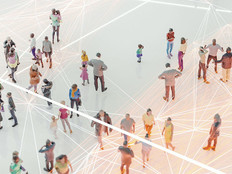Array of Things Aspires to Create Fitness Tracker for Cities
How can technology improve lives and help our communities thrive?
The only way to answer such questions lies in our ability to measure and track what our citizens and communities do on a regular basis. The Internet of Things has caught on as an innovative idea with city governments in particular, as the push to create smart cities grows.
Researchers from the Urban Center for Computation and Data, part of the Computation Institute at the University of Chicago, are channeling the Internet of Things into a specific project for the Windy City that it’s calling the Array of Things. Project leaders say they want to create the equivalent of a “fitness tracker” for cities.
What if a light pole told you to watch out for an icy patch of sidewalk ahead? What if an app told you the most populated route for a late-night walk to the El station by yourself? What if you could get weather and air quality information block-by-block, instead of city-by-city?
The Array of Things (AoT) is an urban sensing project, a network of interactive, modular sensor boxes that will be installed around Chicago to collect real-time data on the city’s environment, infrastructure, and activity for research and public use. AoT will essentially serve as a “fitness tracker” for the city, measuring factors that impact livability in Chicago such as climate, air quality and noise.
It’s an exciting prospect, and if it delivers on its futuristic scenarios, then smart cities can truly shift from fantasy to reality.
Expanding the Array of Things to Other Cities
While Chicago is the first to get its hands on the Array of Things project, other cities will benefit from the innovative technology as well.
Seattle is slated to be the next city to implement the Array of Things, reports GovTech, and with each city added to the project, more unique use cases will emerge. Rainfall is a particular concern for Seattle, which is why city leaders plan on “modifying the nodes to help collect hyperlocal data on rainfall. That would allow the city to better identify when and where it can expect flooding, and respond accordingly.”
Other cities that have expressed interest in joining the project in the future include Portland, Ore.; Chattanooga, Tenn.; Atlanta; Boston; Pittsburgh; and New York.









